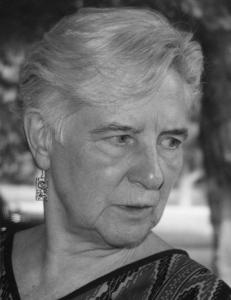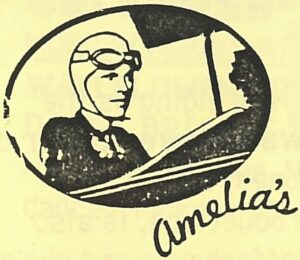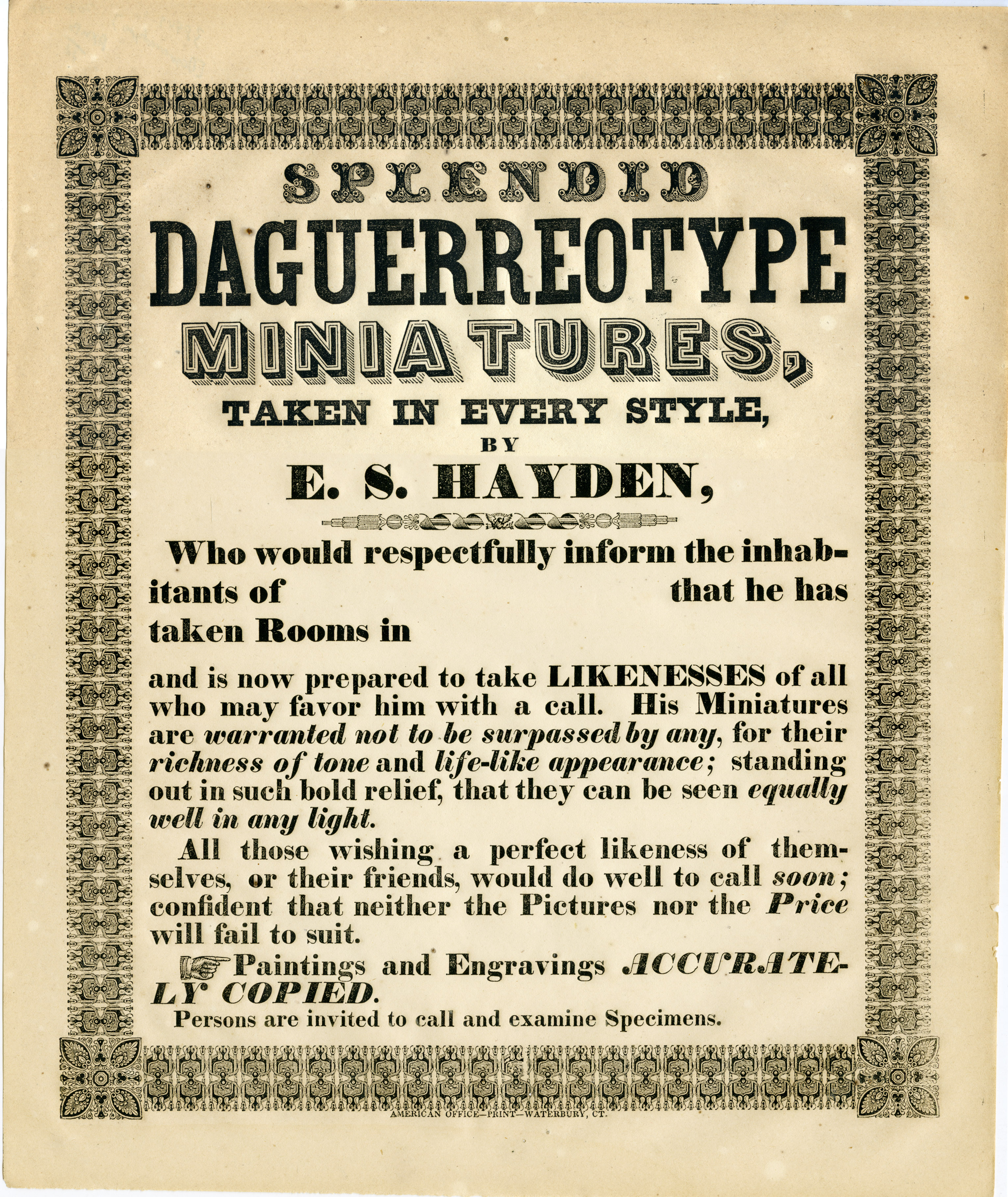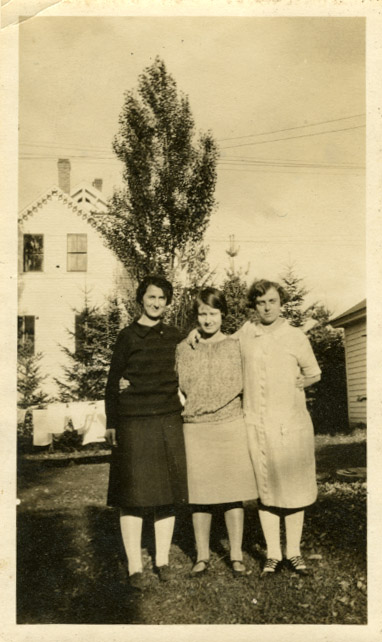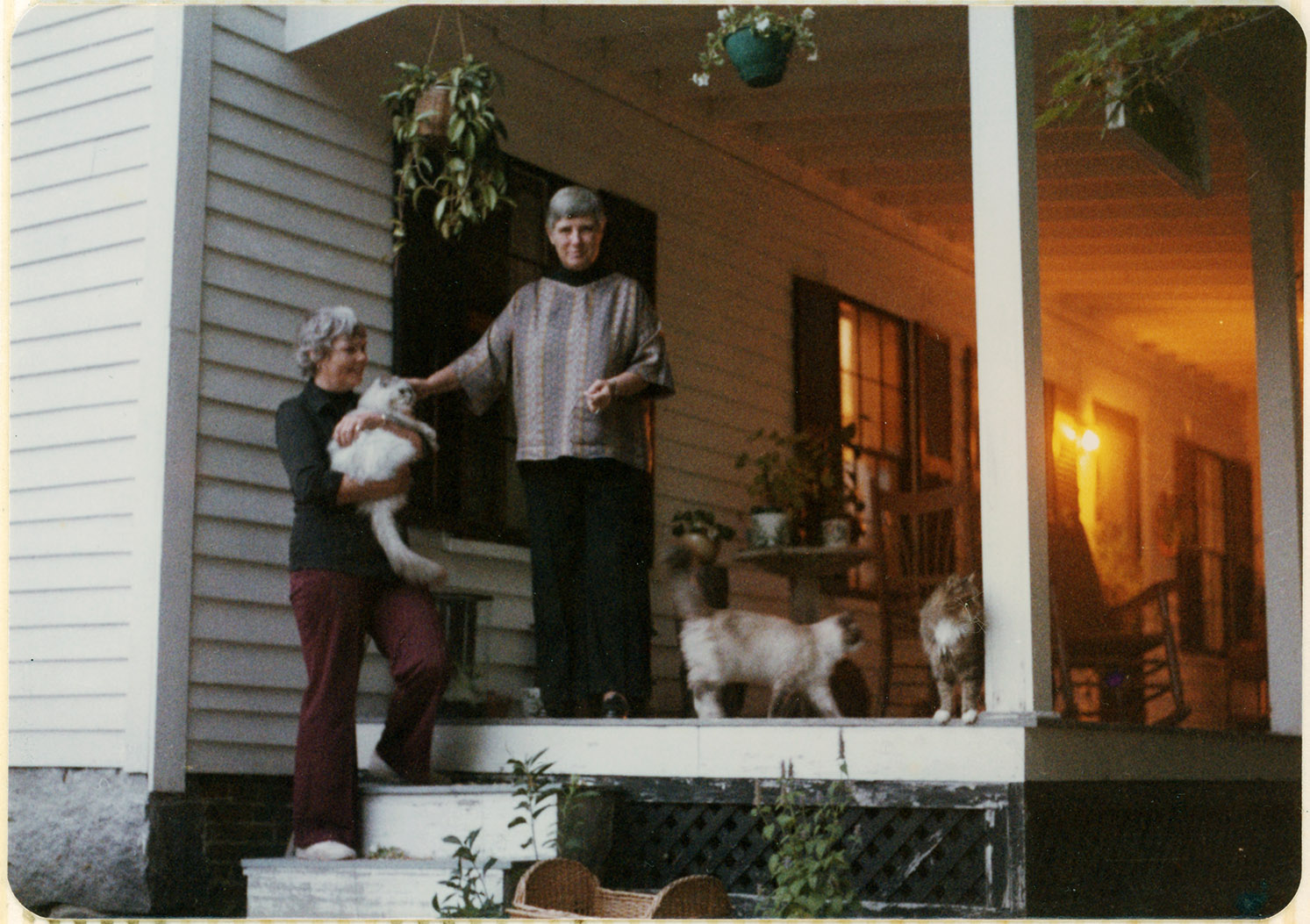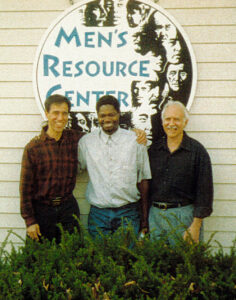 L-R: Steven Botkin (MRC Executive Director), Thulanu Nkosi (men's work leader in South Africa), and Rob Okun (MRC Associate Director), ca. 2000
L-R: Steven Botkin (MRC Executive Director), Thulanu Nkosi (men's work leader in South Africa), and Rob Okun (MRC Associate Director), ca. 2000
Joining a men’s group soon after his arrival in the Pioneer Valley in 1979, and finding the support and community there important personally, and professionally for his graduate work in anti-oppression education, Steven Botkin began his now decades long work in anti-sexist activism. While doing his doctoral work at the University of Massachusetts Amherst, in 1982, Botkin co-founded the Men’s Resource Connection (MRC) to promote healthy ideas of masculinity and male leadership by challenging harmful stereotypes involving violence, sexism, and oppression and to create a local network devoted to this work. He completed his Ed.D. in 1988 (dissertation entitled Male Gender Consciousness: A Study of Undergraduate College Men) and continued to guide the MRC into a successful non-profit community-based organization, whose programs became a model for men’s organizing in communities around the world. In 2004, Botkin founded Men’s Resources International (MRI) to support the development of masculinity awareness and men’s engagement as allies within a global network. MRI eventually merged with MRC to form MERGE for Equality, Inc. Botkin additionally co-founded the Springfield based Men of Color Health Awareness (MOCHA), and the North American MenEngage Network, and has served as a leader, trainer, educator, and consultant for local, national, and global men’s groups and organizations, including in Africa, Asia, and Europe, and for groups such as the YMCA, Planned Parenthood Federation, Save the Children, the International Rescue Committee, and the Women’s Peacemakers Program.
The Steven Botkin Papers document Botkin’s long career in global men’s organizations and networks and their work in policy, education, empowerment, and organizing around the intersections of masculinity, gender, violence, sexism, oppression, power, politics, and society. Materials related to the men’s movement include significant records from the various groups Botkin co-founded and assisted, including organizational histories, program records and reports, meeting agendas, resource pamphlets, posters, networking and training curricula handbooks and handouts, a full run of the MRC magazine Voice Male, and video tapes and recordings. Botkin’s collection compliments and enriches the materials in the Men’s Resource Center Records.
